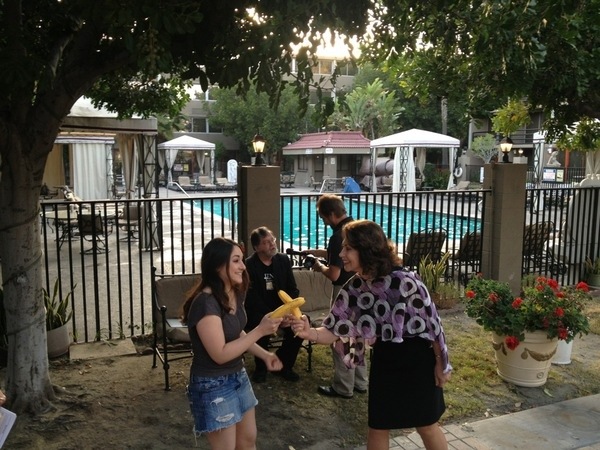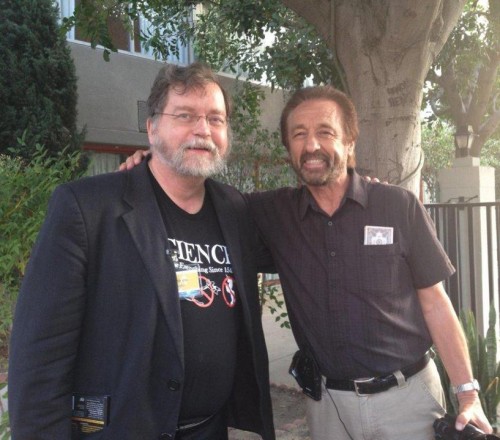He asked to interview me for a documentary he’s doing. I agreed because I knew exactly what he was going to ask me…and I was right, there were no surprises at all.
He started by asking me for evidence of evolution. I tried to explain the evidence for speciation in sticklebacks, but he asked if they were still fish, and when I said they were, he said that didn’t count because they didn’t become a different “kind”, like a dog becoming a cat. So I told him that doesn’t happen in a single lifetime, and that carnivores diverged over 60 million years ago. I suggested he look at fossils, but he rejected that, because he wanted “observable” evidence, and anything that happened millions of years ago isn’t observable. So I said it was, too — fossils and molecular evidence are observable.
So the usual creationist run-around, where he defines what evidence he’d find acceptable by rejecting historical evidence as nonexistent, and contemporary evidence as too trivial.
Then he tried the usual stunt: “Are you a good person?” “Yes.” “Have you ever told a lie?” “Yes, but that a person has flaws doesn’t make them a bad person. The overall estimation of an individual’s character is not determined by one mistake.” And then he dropped the whole line of discussion.
It was as pointless as I expected. I think I managed to frustrate his usual line of patter, which was the best I could hope for anyway.
Hey, lots of people were taking pictures of the two of us. Send them to me, so I have a memento!
That’s Jessica Ahlquist dueling Margaret Downey with a banana in the foreground; the far less interesting event in the background is Ray Comfort asking me about evolution. (Photo by Kent Martin.)
Also, some of you in the comments are psychic. Yes, I mentioned Lenski’s experiment to him: “they’re still just bacteria”. I also explained to him that “just a fish” is meaningless, that we humans are derived fish. He thought that was all weird.
Another photo!




